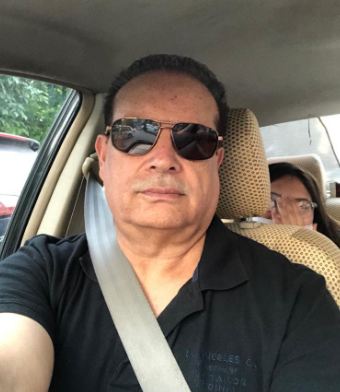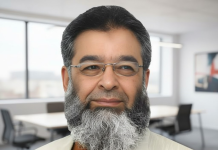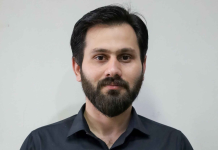By: Qamar Bashir
Major General Ahmed Sharif of the ISPR delivered a fiery press conference primarily centered around the 9th May incident, attributing blame to the judiciary for its failure to administer exemplary punishment to the masterminds, planners, abettors, and facilitators. He suggested that PTI could receive a clean chit if it sought forgiveness, condemned the 9th May inferno, vowed not to repeat such an episode, and committed to playing a sincere role in the country’s development and progress.
He emphasized that the perpetrators of violence and destruction at Jinnah House were so evidently guilty that further evidence was unnecessary for their conviction. However, despite this, they have not received exemplary punishment. In contrast, the army, which operates under an automatic, transparent, and stringent accountability system, has already subjected all those found complicit or failing in their duties during the 9th May episode to rigorous scrutiny. He specifically cited the case of Major General Bilal, Corp Commander Mangla, and former ISI chief General Faiz, who were subjected to strict disciplinary measures by the army due to their alleged involvement, which contravened army discipline and conduct.
While criticizing the demand for formation of judicial commission on 9th May inferno, he said that commissions are formed to inquire into those incidents where there was an ambiguity and lack of clarity, whereas in this case the planners, instigators, perpetrators are all known, and there was no need for any inquiry. But if at all the inquiry commission had to be constituted then there should be commissions to hold inquiries against the Dharna of 2014, attack on the parliament, attack on PTV headquarter and to the Prime Minister’s House for unearthing the reasons, motives and conspiracy against the then sitting government.
The ISPR chief vehemently asserted that while the army respects all political parties and engages with them for the nation’s progress and prosperity within the bounds of the law and constitution, it will not engage with those who have desecrated the resting places of the Shuhadas, incited young minds against the state and the army, attacked army installations, threatened the army, instigated supporters to attack army vehicles, or propagated campaigns to defame the army and drive a wedge between the people and the armed forces. However, he did not specify the constitutional or legal provisions perhaps due to paucity of time which empowered the army to liaise with political parties.
While addressing the pervasive anti-state and anti-army sentiments on social media, he suggested that by slowing down the internet and suspending platforms like Twitter (now replaced by X), the pace and toxicity of propaganda have been significantly reduced. He indicated that not only existing laws and regulations would be rigorously enforced to bring offenders to justice, but also new legislation would be introduced by parliament to prosecute those engaging in malicious and toxic propaganda against the state, the army, the judiciary, and those undermining friendly relations with foreign countries.
He refrained from commenting on the letters addressed by the six judges to the Supreme Judicial Council, complaining about blatant and overbearing interference by intelligence agencies, stating that the matter is sub judice. However, he added that any complaint had to be supported with incontrovertible facts and evidence; otherwise, such allegations should be regarded as part of a campaign against the army and its institutions.
He claimed that PTI is considered the most popular party, while data, evidence, and surveys show that only 7.5% of the total population voted for PTI in the Feb-8 elections. Credible surveys reflected that 74% of the people of Pakistan consider the army as the top most credible and trusted institution of the country. He emphasized that the Feb-8 elections do not prove that those who voted for PTI endorsed or seconded the May-9 incident. Moreover, those who didn’t vote for PTI did so against PTI’s venomous and toxic politics.
He dismissed allegations against the army’s involvement in alleged rigging in the Feb-2024 elections as part of a propaganda smear campaign against the army. He demanded evidence from those blaming the army for rigging and urged them to produce it before relevant institutions for adjudication or justice. He stressed that during the election, the army’s role was confined to providing a secure enabling environment for fair, transparent, and peaceful conduct, which was performed professionally, leading to peaceful elections nationwide.
Defending the army’s involvement in commercial, large-scale manufacturing, banks, mills, real estate business, construction, and transportation, he argued that this phenomenon is not unique to Pakistan. He stated that in many other countries, the army pursues such endeavors to provide benefits to the families of Shuhudas, retired army personnel, and their families. He clarified that not even a single penny of the exchequer was used in raising these institutions, though he couldn’t elaborate on how these highly capital-intensive projects were funded due to time constraints.
The timing of the press conference was significant, given ongoing judicial proceedings. The Supreme Court is hearing the Faizabad Dharna case and has rejected the Dharna Commission’s report. Another Supreme Court bench has suspended the Election Commission and Peshawar High Court’s decision, which deprived PTI of special seats for women and minorities, impacting the coalition government’s votes in parliament and its ability to make constitutional amendments. This ruling has also given hope to PTI for regaining their status as a political party elections symbol and securing the release of their leader. The entire judiciary is rising against interference by intelligence agencies and the executive in cases with significant political implications.
This press conference also posed a significant question: What happens if, following due judicial process, the Supreme Court clears the former chairman of PTI and its leaders, who have been imprisoned for a year, allowing PTI to resume functioning as a regular political party? How does this affect the army’s demand that PTI must seek forgiveness to be spared?
By: Qamar Bashir
Former Press Secretary to the President
Former Press Minister to the Embassy of Pakistan to France
Former MD, SRBC

















